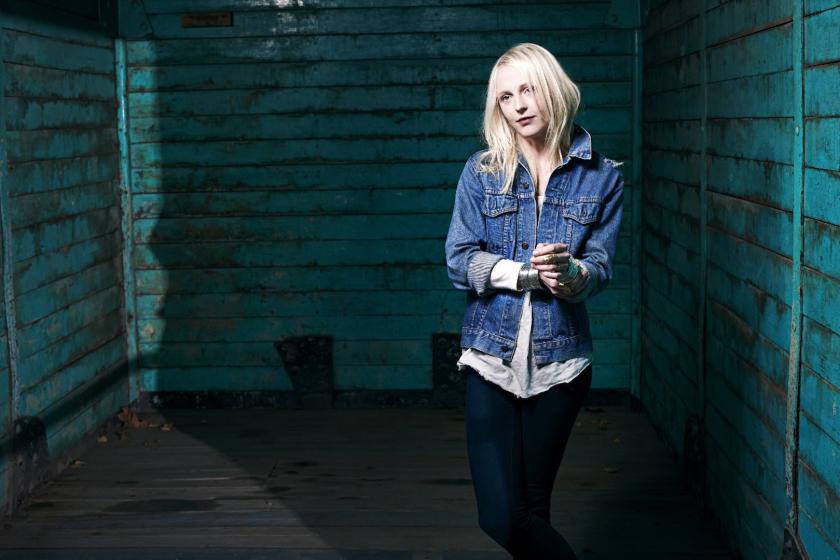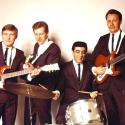Laura Marling has a way, in mid-song, of arching her head back as far as it will go, as if she were opening herself up to the heavens. She’s never been one to let herself go on stage, at least not physically: there are no unnecessary histrionics, just a surrender to the extraordinary force that pours through when she stands and delivers.
Bristol's Colston Hall, she told the audience after her opening number, means a great deal to her: this is where her dad brought her at 14 to see her first ever live gig. “Who was playing?” someone shouted from the audience. “Ryan Adams!” she answered. “And we had to leave before the end, to catch the last train home." The first couple of songs allowed her to get the feel of the audience and gently gather her pace. By the time she hit “Salinas”, with its references to the burning fire of the sun, she had found her stride, inflamed with the intense spirit that makes her such an unusual artist. She held the audience – an unusually all-embracing range of young and old – spellbound.
She was very much the star and yet her musicians did much more than support her
The show was paced with exquisite skill and sensitivity, an acute sense of shifting moods mirrored in the equally dramatic internal structure of her songs. “Blackberry Stone” and “Ghosts”, distinguished by the mixture of simplicity and mystery she seems to achieve with such natural ease, were followed by “Alas I Cannot Swim”, one of the early songs that seemed uncannily accomplished for a writer of only 17 years.
The band then left her alone on stage. This was the moment of greatest intimacy, the singer stripped bare, her voice the perfect instrument for her rawest emotions. She started with an untitled new song – a carefully-honed jewel that spoke of the devil messing with her mind. The power of Laura Marling’s material derives in part from the ease with which she slips in references to mortality, sin and the devil, never in a heavy or portentous way but as if these profound matters were the stuff of everyday life. Ryan Adams’s “My Winding Wheel” came next: something of Adams’s intense yet relaxed blend of country and rock can at times be felt in Marling’s own material. But, as she demonstrated in the last song of her solo spot, a moving version of “Goodbye England (Covered in Snow)”, she has also absorbed and made her own the jazzy vocal inflections of Joni Mitchell - a way of swooping from lower to higher register and back, and of switching in a flash from melodic singing to near-spoken delivery.
Her band provided perfect backing and a variety of unusual textures weaving together the sounds of cello, tenor horn, upright bass, banjo and mandolin, along with guitar, keyboards and drums. She was very much the star and yet her musicians did much more than support her: they allowed her, when the music required it, to fly high, while remaining in touch with the raw vulnerability that defines her.
“Sophia” is a masterpiece – a song that will still be performed many years from now. What might be the “dust” that has wounded her? The lyrics’ poetry tantalisingly reveal shards of meaning: Marling might be alluding to wisdom, as the title suggests, the other-worldly wisdom that the young singer seems miraculously to have acquired so young. When she hit “Rambling Man”, there was a new-found confidence about her, as if she had achieved her full strength as a woman, still nurtured - paradoxically - by her wounds, yet stronger and more in touch with her deep self.
There was the same force in her closing number, “I Speak Because I Can” a song that alludes to the assertion of feminine power, but without the stridence that would reduce it to mere posturing. What makes Laura Marling such an outstanding artist – perhaps the greatest British woman singer-songwriter today alongside PJ Harvey – is her authenticity. She is a natural – a poet and musician whose work seems to flow effortlessly – without showing any sign of being spoiled by success.















Add comment